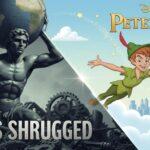
A fascinating, if not yet widely substantiated, study recently came to my attention, one that offers a profound empirical mirror to the philosophical truths I have spent a lifetime articulating. The experiment, as it was explained, sought to measure the electromagnetic energy output of a human being within the sterile, isolated environment of a Faraday cage. The initial hypothesis was that peak energy would be generated during moments of intense […] Read more »













